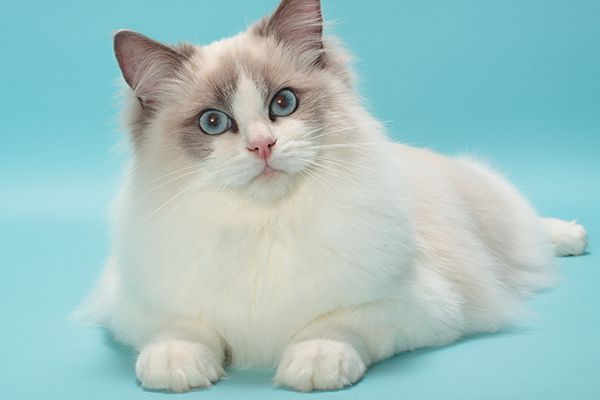Ragdoll cats are captivating and beloved feline companions with their striking appearance and gentle nature. However, like any pet, they come with unique characteristics and challenges that potential owners should consider. While Ragdolls make wonderful pets for many, it’s essential to be aware of these potential challenges before bringing one into your home. In this article, we will explore 20 aspects that may present challenges for some Ragdoll cat owners.
- Grooming Requirements: Ragdolls have long, luxurious fur that requires regular grooming to prevent matting and tangles. This can be time-consuming for busy owners. Daily brushing is recommended, especially during shedding seasons, to maintain their coat’s health and appearance.
- Shedding: Despite shedding less than some breeds, Ragdolls do shed. Regular vacuuming and cleaning may be necessary to manage pet hair. Providing them with a proper diet and grooming can help reduce shedding.
Read also: Debunking Misconceptions: 20 Common Myths About Ragdoll Cats
- Healthcare Costs: Ragdolls may be prone to certain health issues, and veterinary care can be expensive. Potential owners should be prepared for regular vet visits, vaccinations, and potential treatment costs.
- Size: Ragdolls are a large breed, and their size may be intimidating for some individuals, especially children. It’s essential to consider whether you have enough space to accommodate a larger cat comfortably.
- Demand for Attention: Ragdolls thrive on human companionship and may become distressed if left alone for extended periods. They enjoy being part of family activities and may follow their owners around the house.
- Need for Stimulation: While generally calm, Ragdolls still require mental and physical stimulation to prevent boredom. Interactive toys and playtime are essential to keep them engaged.
- Claw Management: Ragdolls may have strong claws that require regular trimming and providing suitable scratching posts. This helps prevent damage to furniture and keeps their claws in check.
- Potential Allergies: Despite being considered hypoallergenic, some individuals may still be allergic to Ragdolls. Spending time with a Ragdoll before bringing one home can help determine any potential allergy concerns.
- Vocalization: Some Ragdolls can be more vocal than others, which may not be suitable for those seeking a quiet pet. They may communicate through soft trills and meows to express their needs.
- Intolerance to Change: Ragdolls may struggle with changes in their environment or routine. Gradual introductions to new situations can help them adjust more smoothly.
- Interaction with Other Pets: While Ragdolls are generally social, some may not get along well with other pets. Proper introductions and supervision are essential when introducing them to existing pets.
- Feeding Preferences: Ragdolls may have specific dietary preferences or restrictions, requiring careful attention to their nutrition. Consult with your veterinarian to provide a balanced and appropriate diet.
- Potential Hereditary Conditions: Responsible breeding can help reduce the risk, but Ragdolls may still be prone to hereditary health conditions. Familiarize yourself with potential breed-specific health concerns.
- Gentle Handling: Due to their laid-back nature, Ragdolls require gentle handling to prevent injuries. Avoid rough play and be mindful of their sensitivity to being handled too roughly.
- Water Fascination: Some Ragdolls may have an unusual fascination with water, which could lead to messy situations. Keeping toilet lids closed and providing access to shallow water sources can help manage this trait.
- Needy Behavior: Ragdolls may become overly dependent on their owners, seeking constant attention. They enjoy being held and petted, but it’s essential to set boundaries to avoid reinforcing overly clingy behavior.
- Potential for Obesity: Their love for food and relaxed demeanor may lead to weight gain if not managed through proper diet and exercise. Monitor their food intake and engage them in regular play to prevent obesity.
- Long Lifespan: Ragdolls have a long lifespan, requiring a significant commitment from their owners. Be prepared for a lasting and fulfilling relationship with your Ragdoll that can span 12-17 years.
- Training Challenges: Ragdolls may be resistant to certain training methods due to their independent streak. Use positive reinforcement techniques and be patient with the training process.
- Availability and Cost: Due to their popularity, finding a purebred Ragdoll kitten from a reputable breeder can be challenging and expensive. Research and patience are necessary to find a reputable breeder.
Conclusion
Owning a Ragdoll cat can be a rewarding and delightful experience for those who are prepared to meet their unique needs and challenges. As with any pet, understanding the breed’s characteristics and being willing to invest time, effort, and love into their care is essential to ensuring a happy and harmonious relationship with these enchanting feline companions.
